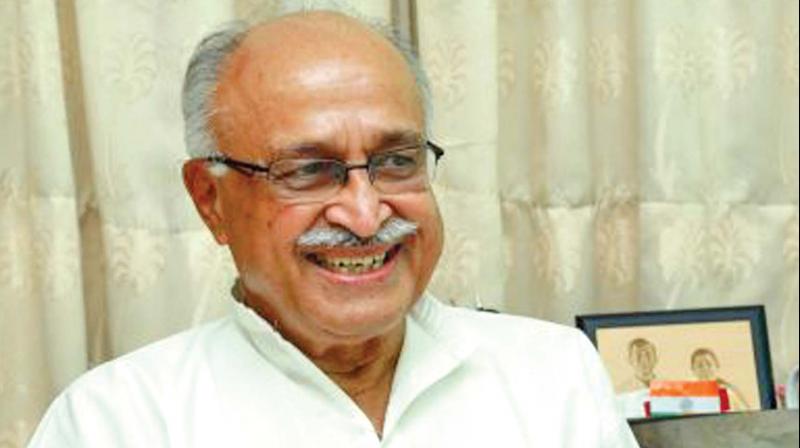Professor Kulbhushan Warikoo is an eminent educationist, author and scholar, who has been teaching for over 25 years at the Central Asian Studies Programme, School of International Studies, Jawaharlal Nehru University, New Delhi. Internationally known for his distinguished service to Himalayan, Central Asian, Eurasian and Silk Route Studies, Prof. Warikoo is a leading thinker and writer, having published 18 books, most of them of pioneering nature.
Afghanistan is once again the headline in global politics. The Taliban seized power in a short period after the withdrawal of U.S. troops. How did this happen? For the past twenty years, how have the Taliban been able to survive? After all, this would not have been possible without a rear base. Your thoughts.
The Taliban were already there in Afghanistan, consolidating their position with open support from Pakistan. There was also U.S. acquiescence; this was in their bid to wriggle out of the mess they had created decades ago by arming the extremist Islamist mujahideen to force the Russians out. The U.S. achieved their objective and it did not bother them to disarm the Mujahideen, who soon plunged the country into civil war. And even during their recent hurried exit, the U.S. left billions of dollars’ worth of sophisticated arms, ammunition, fighter jets, helicopters and armoured cars that are now in the hands of the Taliban. One can see that in this game, the US target is Russia and China. It will also have adverse impact upon Central and South Asia.
The resurgence of the Taliban is said to have caused excitement among Transnational Jihadis around the world. It is also expected that this could lead to a resurgence of Al Qaeda, in particular. According to the Security Council, Al-Qaeda has an active presence in at least fifteen of Afghanistan’s thirty-four provinces. At the same time, the Haqqani Network is a U.S.-designated foreign terrorist organization integral to the Taliban and has been al-Qaeda’s closest ally since the 1980s. But some refer to it as Taliban II. But that does not seem to be the case. How do you see the rise of the Taliban and the global Jihadi uprising?
The rise of the extremist Taliban to power in Afghanistan has been welcomed by the extremist Muslim groups, religious and political outfits in India. Due to its psychological impact, it is going to give a boost to such extremist and militant groups in India. Islamists from across the world, including the ISIS, ISIS–Khorasan and Al Qaeda, will be encouraged to enforce their declared agenda of bringing and enforcing Islamic order in non-Islamic countries and even in the U.S and Europe. The ground situation in Europe and England is that there is a resurgence of Islamists. Old churches are crumbling and are being sold and converted into mosques.
Pakistan seems to be excited about the resurgence of the Taliban. This is expected to have an impact on Kashmir. Pro-Pakistan Islamic terrorist groups have long been a threat to India’s national security. The Taliban has also said that it has the right to raise its voice for the Muslims in Kashmir and elsewhere. How will the Taliban impact Indian national security in terms of Islamic terrorism?
Pakistan promoted the Taliban to create a subservient government in Afghanistan. This is to fulfil Pakistan’s long-term goal of strategic depth in the region and counter India’s influence. At the same time, Pakistan has been running terror organisations such as Lashkar-e-Taiba and the Jaish-e-Mohammed that have been actively engaged in terrorism in Kashmir. During past few days, we have seen renewed bids by these armed terrorists to cross the Line of Control (LoC) in Kashmir. And during these encounters with Indian forces, several terrorists holding Pakistani citizenship have been killed and large quantities of arms and ammunition have been recovered. Pakistan is desperately trying to push its armed terrorists into Kashmir because there has been a fall in terror activities by the local Kashmiri militants in the last eighteen months.
Generally, what impact can the return of the Taliban have on the political order in South Asia?
The return of the Taliban will have impact on South Asian society and politics if they get international legitimacy. Moreover, the general population of Muslims across South Asia are likely to be swayed by their extremist and political ideas.
Is a China–Taliban honeymoon possible? Indeed, China seems to be interested in establishing ties with the Taliban. China is also expected to reach an agreement with the Taliban to deal with Muslim Uyghur insurgents in Xinjiang. China could not play its game in Afghanistan independently because the U.S. was there. But now, the door is open for China. How do you see the Chinese chess play in this situation?
The Taliban have already lent their support to China by evicting the Uyghur militants from Afghanistan. And China has firm security measures in place in Xinjiang to prevent any Uyghur terror activities. Besides, China is eying to harness the mineral reserves of Afghanistan and push the Belt and Road Initiative.
The ‘Chinese Hand behind Terrorism in Northeast India’ was a paper published by the Vivekananda International Foundation. The paper emphasizes that the rivalry between India and China is getting heated along the border and in other realms. In such conditions, non-conventional and covert operations are likely to be Beijing’s toolkit. Do you think the return of the Taliban will reenergize border terrorism in India? What are your thoughts on this?
Both China and Pakistan are actively funding and propping up separatist and terror activities across North-East India, Naxalism in Central India and even an anti-national narrative of breaking India run by some media persons, academia, lawyers, civil society and political activists.




